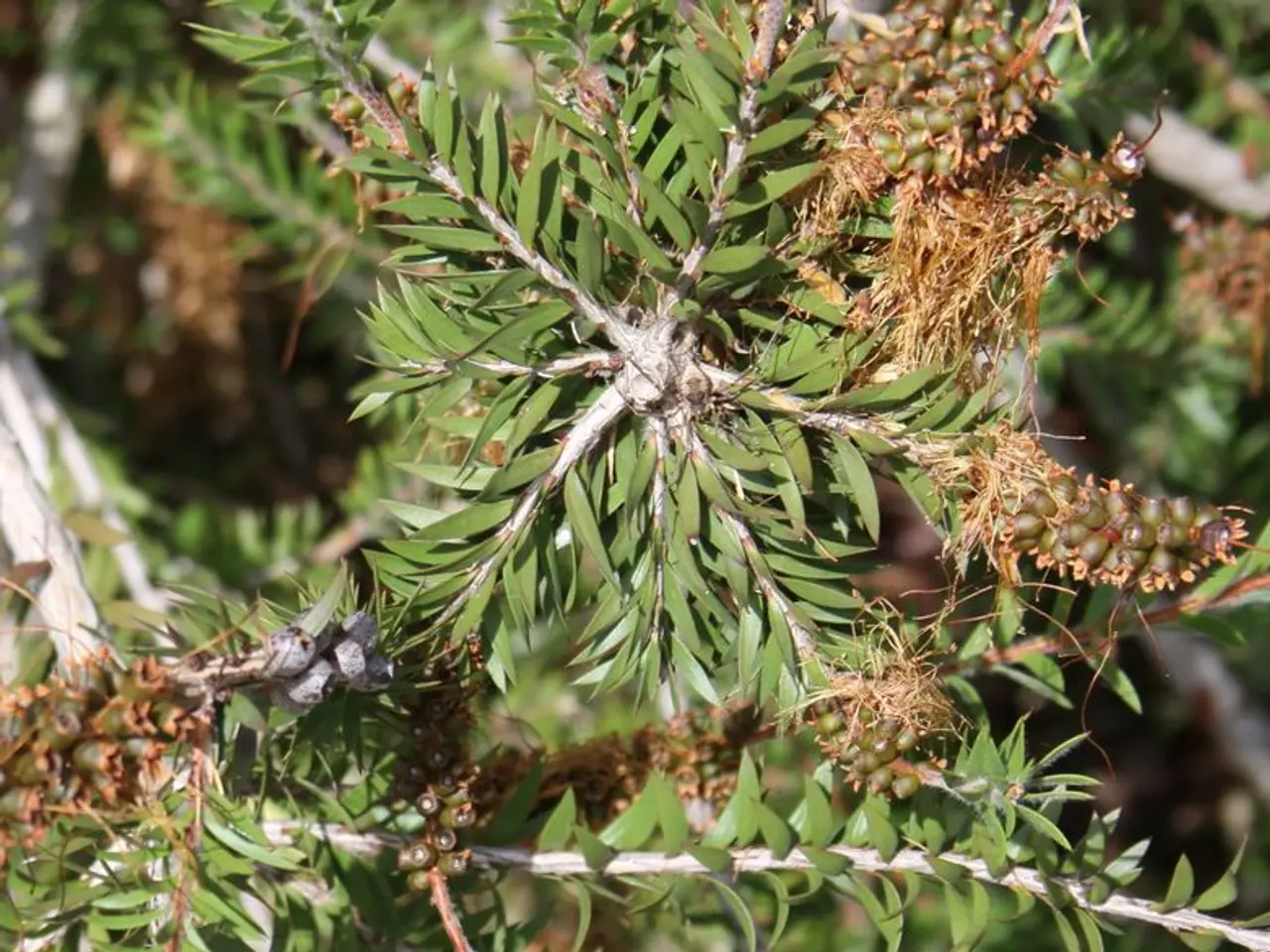Himalayan Ancient Healer Peach Variety: Underutilized Resources with Significant Medicinal Prospects
In the heart of the Himalayan regions, a wild peach species known as Prunus mira, or the smooth-pit peach, remains largely unexplored in terms of its economic potential, traditional uses, and conservation. This tree species, native to regions including Tibet, Nepal, and northern India, has the potential to bring significant benefits to local communities and ecosystems.
Prunus mira is traditionally valued for its fruit, which is consumed fresh and sometimes dried. The species is also used in local medicine, with parts of the tree such as the leaves or bark being employed for traditional remedies. The wood is used for fuel and craft. The tree's adaptation to high altitudes and harsh climates makes it a valuable genetic resource for breeding climate-resilient peach cultivars. Its fruits could find niche market potential in fresh fruit trade, agroforestry, and eco-tourism.
To conserve and sustainably utilize Prunus mira, several steps are proposed. These include conducting detailed ethnobotanical surveys to document traditional knowledge and uses, establishing community-based conservation programs, promoting ex situ conservation, encouraging propagation research, integrating Prunus mira into agroforestry systems, and creating awareness campaigns about its importance.
Prunus mira faces threats from climate change, deforestation, and ignorance. Wild populations are decreasing, and knowledge of how to grow the tree is being lost. However, the tree's hardiness, ability to withstand frost, and need for little watering make it well-suited for marginal lands that would otherwise be useless.
The seeds of Prunus mira contain rich oils that are utilized in traditional medicine and cosmetics. The kernels, when dried and ground, yield oil high in omega-6 and omega-9 fatty acids, which could potentially fetch good prices in cosmetic or health product lines.
The oil from Prunus mira kernels is highly valued in both Tibetan and Chinese medicine. In traditional medicine, it is used to stop hair fall, stimulate new hair growth, relieve menstrual cramps, constipation, and treat wounds and swelling. Villagers in Tibet even brew fermented peach wines that are popular in local tourism.
Prunus mira occurs naturally in high-altitude districts of Tibet, Sichuan, and Yunnan in China, as well as in some areas of Arunachal Pradesh, Sikkim, Uttarakhand, Himachal Pradesh, and north West Bengal in India. Tourism opportunities around Prunus mira exist, such as festivals, homestays, and orchard walks.
Community efforts, including conservation, nurseries, training, and market access, are needed to conserve and utilize Prunus mira. The market price of kernels in China is approximately 60 RMB/kg. With the right support, Prunus mira holds promise for enhancing regional agro-biodiversity and rural economies.
For more precise and updated information, consulting specialist ethnobotanical literature or Himalayan agricultural research publications is advised.
Read also:
- Confirmed instance of West Nile Virus discovered in Kentucky; authorities urge residents to adopt protective measures
- Accessing Renewed Vigor through TRT Online Services in Sarasota, Florida
- Examining the Nutritional Breakdown of Proscuitto di Parma: In-depth Analysis versus Counterparts
- Record-Breaking Heat Wave Transforms Death Valley: Is the Scorching Summer Deterring Tourism?







